The Music Makers: Volume 5
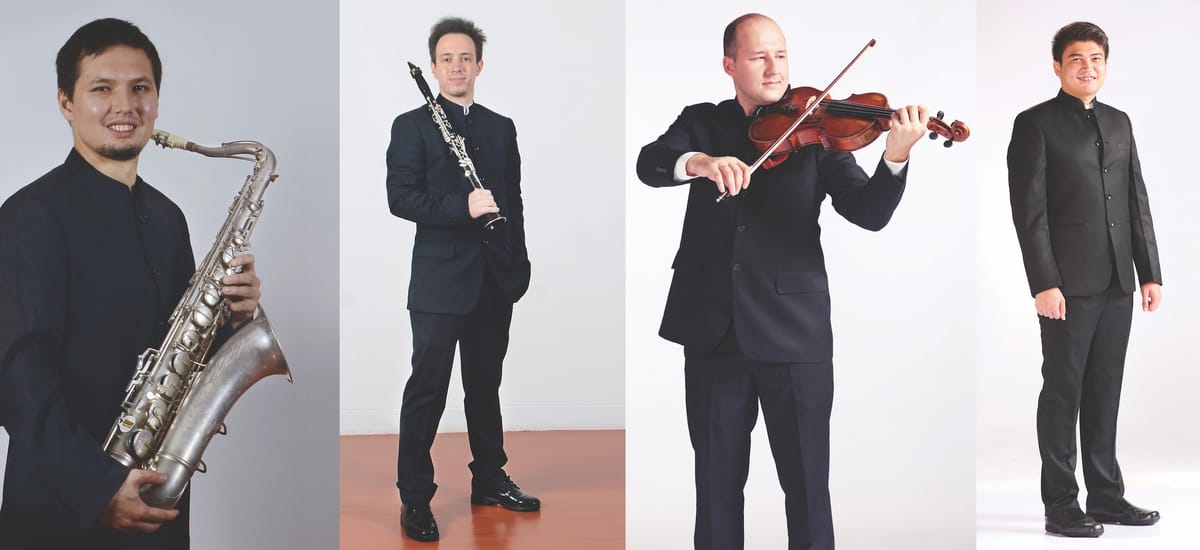
We take a closer look at some of the people who have been an integral part of the Symphony Orchestra of India.
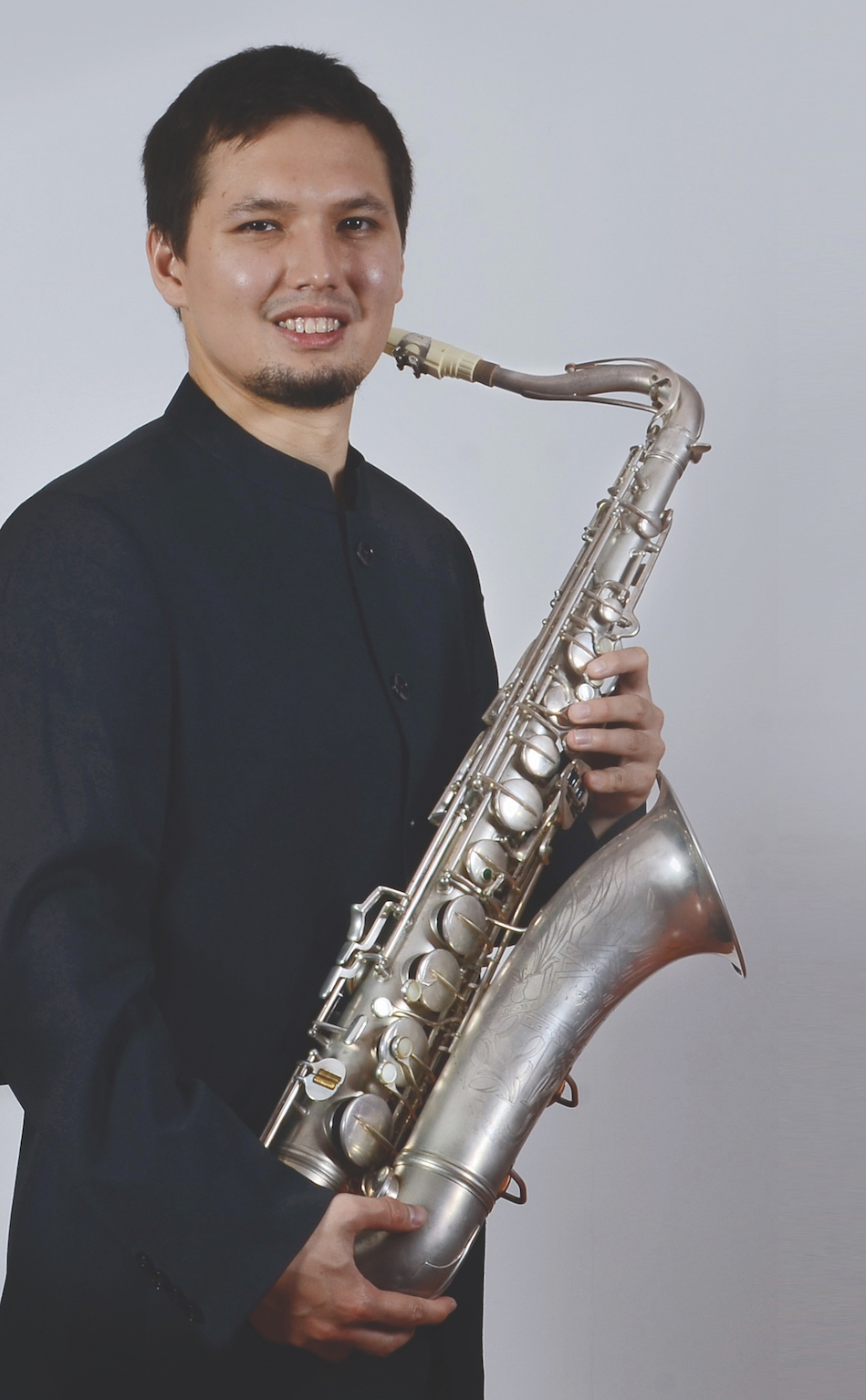
ALPAMYS BISSENGALIYEV, SAXOPHONE
ON Stage: How did your collaboration with the SOI begin?
Alpamys Bissengaliyev: SOI music director Marat Bisengaliev is very famous in Kazakhstan. Once he came to my school and put several music scores in front of him on stage and told us he could play any of them by heart. Then, he asked someone from the audience to pick one. I ran on to the stage, chose one and he actually performed it by heart, with the orchestra right there. All of us were very impressed. I used to go to his concerts a lot in my childhood and never expected that someday, I will get an opportunity to work with him. I am grateful to the SOI Manager Onay Zhumabayeva who made my audition at the SOI possible.
OS: Describe a regular working day in the life of a resident SOI musician.
AB: Generally, our day includes five hours of orchestral practice and a few hours of teaching every day.
OS: What has been your most fulfilling teaching experience with the SOI?
AB: I really like conducting master classes and workshops across India. It is exciting to see interest in the eyes of children, most of whom are hearing the saxophone’s sound live for the first time.
OS: How did you decide to become a musician?
AB: It was my fate, because my parents are professional musicians. My dad is the best trombone player in my country, and my mom is a great pianist. They have performed together throughout their lives.
OS: Have you explored other genres of music?
AB: I used to study and play Kazakh folk music a long time ago. Recently, I started to learn jazz.
OS: What is your all-time favourite work of music and why?
AB: I like all kinds of music. But as a pianist, Beethoven is my all-time favourite composer, and as a saxophone player, I prefer Charlie “Bird” Parker.
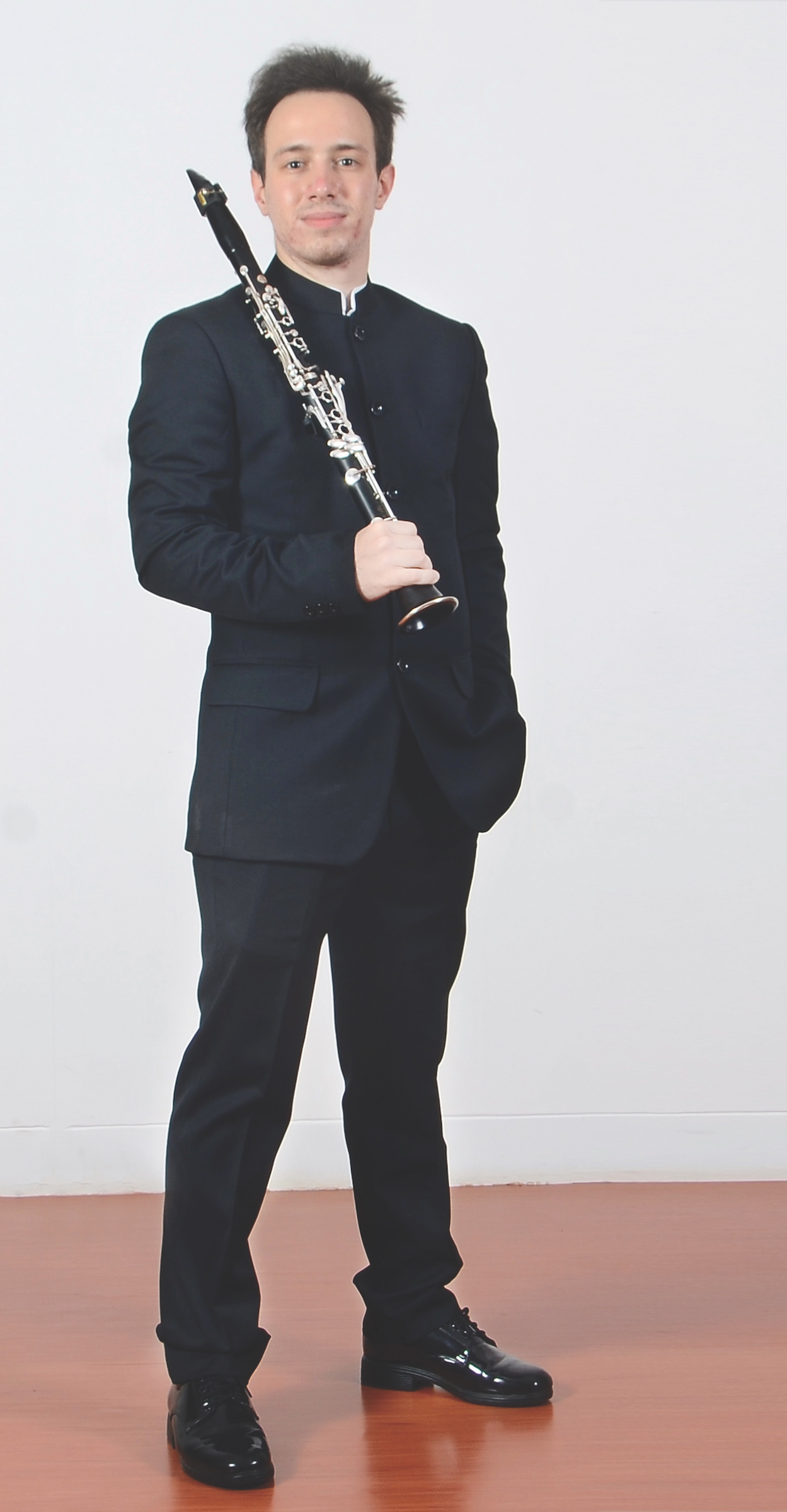
RUSLAN GALILOV, CLARINET
ON Stage: How did your collaboration with the SOI begin?
Ruslan Galilov: While I was graduating from the conservatory, I was informed that the SOI was looking for a resident clarinet player and teacher. I auditioned and, luckily, got through.
OS: Describe a regular working day in the life of a resident SOI musician.
RG: Our regular working day includes orchestral, ensemble, solo practices and teaching at the SOI Music Academy.
OS: Could you describe what you believe was your best performance with the SOI till date?
RG: It is always very exciting to be a part of the SOI concerts. But the most memorable performance for me was when I got to play some of my favourite pieces by Schumann. I did not expect there to be such an incredible audience over here. They kept applauding, standing and asking for encores, which honestly happens very rarely at wind recitals.
OS: Similarly, what has been your most fulfilling teaching experience with the SOI?
RG: Once, with the wind quartet in Hyderabad, we had almost a hundred children in the workshop. I had prepared a long and interesting speech about the clarinet. But the children were so enthusiastic and asked so many questions that I didn’t get an opportunity to speak a single word from my speech.
OS: Why, according to you, is music important?
RG: Music is an extremely unique language. Everyone can speak it, and everyone can understand it.
OS: How did you decide to become a musician?
RG: My grandparents are big fans of Western classical music. They wanted my dad to become a musician, but since that didn’t work out, I was next. I spent twelve years in a special music school for gifted children, four years in the State Conservatory and voila – the world had a new professional clarinet player.
OS: Have you explored other genres of music?
RG: I didn’t study anything else professionally, but I must mention, I enjoy playing Jewish music.
OS: What is your all-time favourite work of music and why?
RG: I can’t pick only one as favourite. But I adore all the Brahms’s sonatas for clarinet and piano.
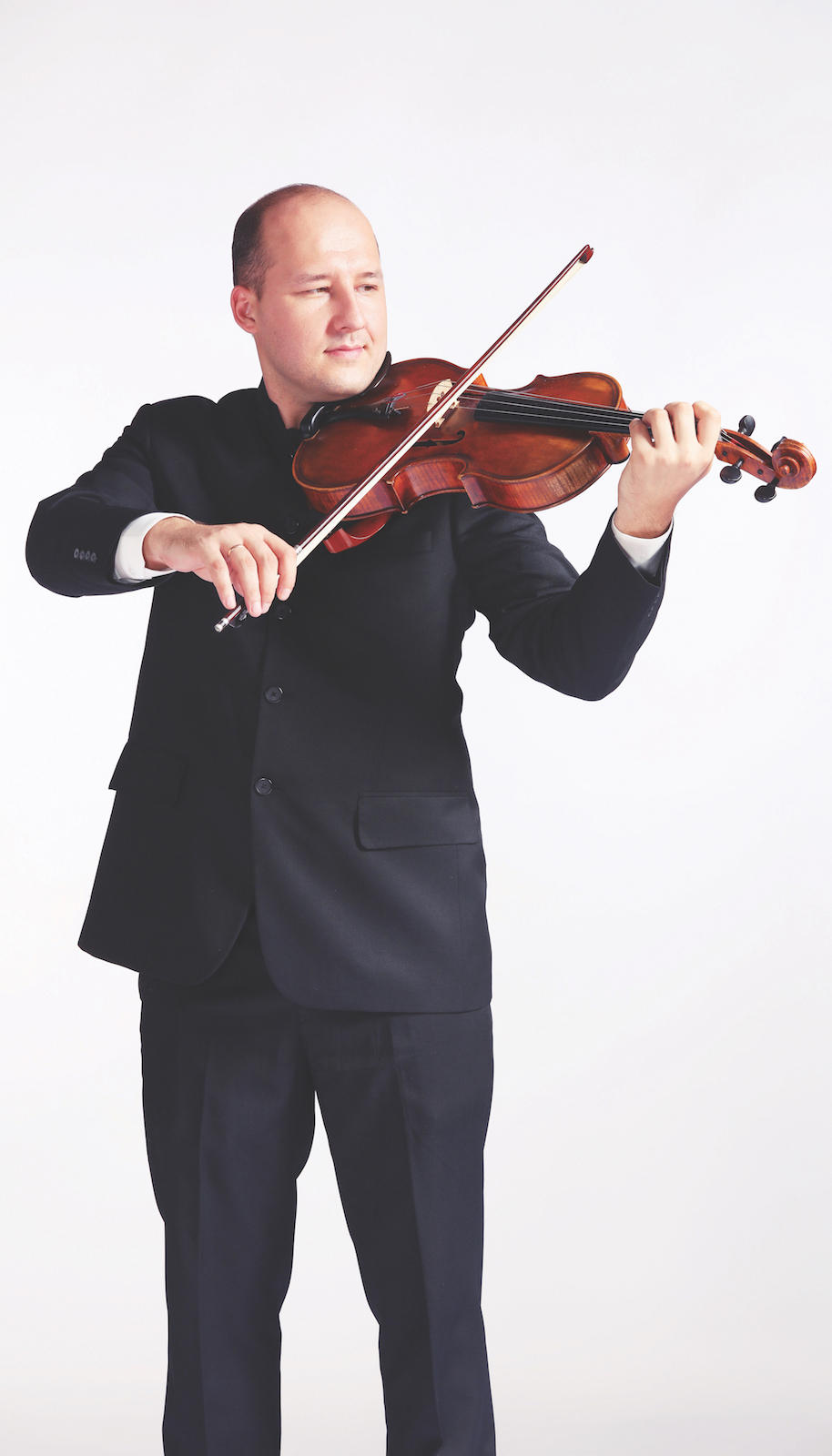
OSMAN YARULLIN, VIOLA
ON Stage: How did your collaboration with the SOI begin?
Osman Yarullin: I was invited by our Music Director, Marat Bisengaliev, to join the SOI many years ago. I was so happy to also have the opportunity to teach aspiring musicians.
OS: Describe a regular working day in the life of a resident SOI musician.
OY: Our days entail fulfilling the four different roles we have: we teach the children at the academy, we prepare the scores for the upcoming season, we serve as members of the SOI Chamber Orchestra, and we are members of the SOI as well.
OS: Could you describe what you believe was your best performance with the SOI till date?
OY: A few years ago, we played Symphony No. 9 by Antonín Dvořák, conducted by Charles Dutoit. It was one of those concerts where everything came together perfectly, making it an unforgettable experience.
OS: Similarly, what has been your most fulfilling teaching experience with the SOI?
OY: I have taken on the role of conducting the children’s orchestra in rehearsals. It gives me great satisfaction, to guide them and teach them what to listen for.
OS: Why, according to you, is music important?
OY: At its best, music can express emotions where words do not suffice.
OS: How did you decide to become a musician?
OY: I have never given that much thought. I grew up in Tashkent, where there was a great Soviet tradition for music, especially string instruments. I always wanted to be a part of that.
OS: What is your all-time favourite work of music and why?
OY: I am pressed for choice here, but I do love Bartók’s Concerto for Orchestra. I love the Hungarian folk music elements that intertwine with Bartók’s brilliant treatment of elements of rhythm.
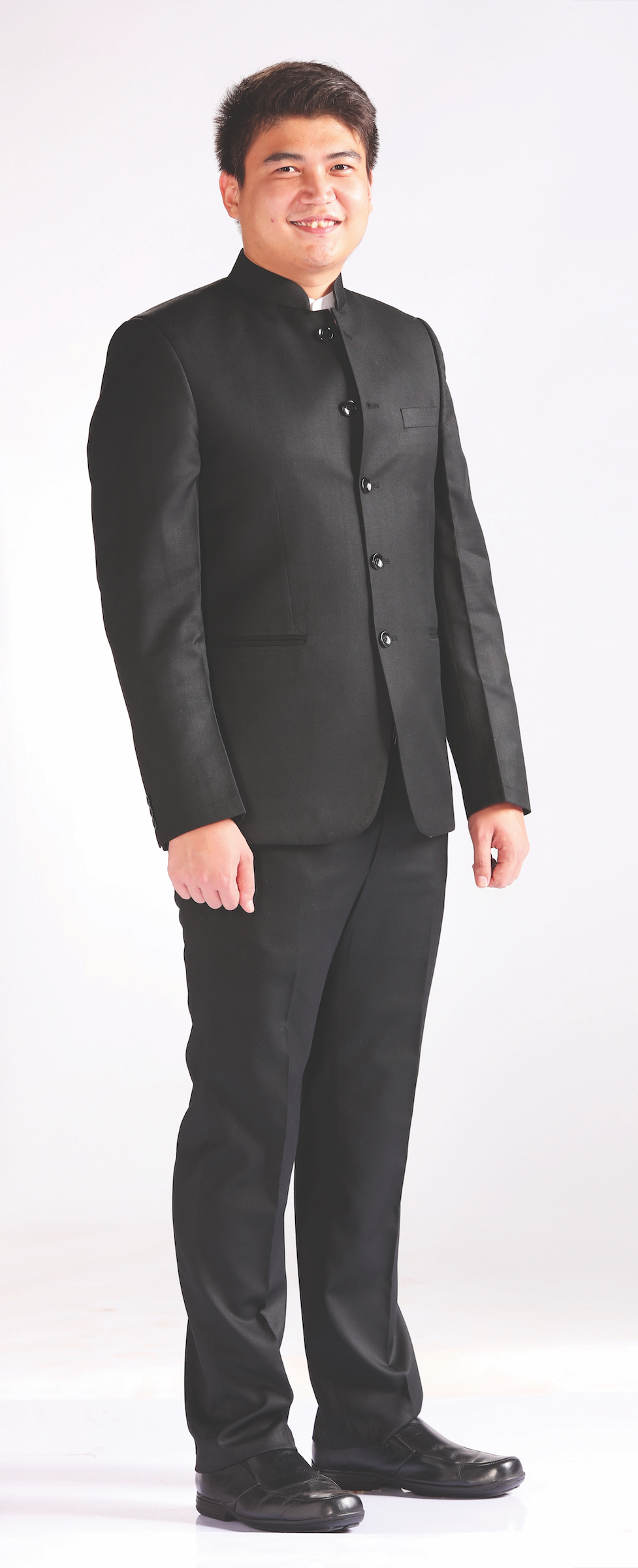
AL-FARABI BAKHTIYAROV, OBOE
ON Stage: How did your collaboration with the SOI begin?
Al-Farabi Bakhtiyarov: When I heard that the SOI was looking for musicians who could play wind instruments, I sent my performance video, and luckily for me, I was accepted. Since then I’ve been playing the oboe in the SOI. I joined the SOI in 2016 and have been here for almost three years.
OS: Describe a regular working day in the life of a resident SOI musician.
AB: Typically, I start work at 10 am every day. Along with my colleagues, we learn various nuances of symphonic, orchestral and chamber music. I also work on my solo performance. After 4pm, I teach at the SOI Music Academy.
OS: Could you describe what you believe was your best performance with the SOI till date?
AB: In 2018, as part of the wind quartet, I went to Ahmedabad for a special concert. We performed in the amphitheatre. This concert was the most memorable for me because we were listened to not only by people, but also by monkeys. And, I must say, they listened to classical music very carefully. That was both wonderful and funny.
OS: Why, according to you, is music important?
AB: I think music is very important in life. It helps people to develop spiritually. Music not only helps one relax, but also express one’s feelings and emotions.
OS: How did you decide to become a musician?
AB: I was born in musical family. My father plays various instruments and my mother is a singer in a choral chapel. Since childhood, I have always liked singing very much. When I was six, my mother suggested I go to the specialised music school for exceptional children named after Akhmet Zhubanov, which is situated in Almaty, Kazakhstan. Since then, music and I have been inseparable.
OS: Have you explored other genres of music?
AB: Definitely yes, I am fond of different genres. In spite of the fact that I am a classical musician, I am very fond of pop music. I have even been part of a musical band. I am also fond of beatboxing.
OS: What is your all-time favourite work of music and why?
AB: I love Symphony No. 9 by Antonín Dvořák. My favourite part is the third movement, in which you can listen to the English horn solo. It transports me to a world of green nature, mountains, small rivers and valleys.
All Images © NCPA Mumbai
This piece was originally published by the National Centre for the Performing Arts, Mumbai, in the July 2019 issue of ON Stage – their monthly arts magazine.





